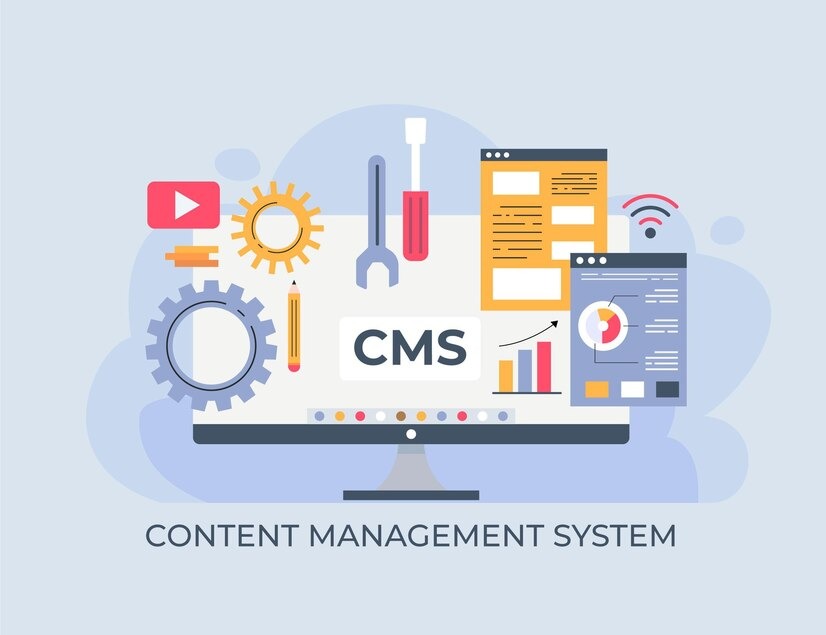In the rapidly evolving world of online commerce, choosing the right Content Management System (CMS) can make or break your e-commerce success. With consumer expectations at an all-time high in 2025–26, your CMS must deliver speed, scalability, security, and seamless customer experiences.
This guide explores the top CMS platforms for e-commerce, helping businesses of all sizes—whether startups or enterprises—make the right decision for long-term growth.
What Is a CMS and Why Does It Matter in E-Commerce?
A CMS is a platform that allows users to create, manage, and modify digital content without needing technical expertise. In e-commerce, it becomes the engine that powers everything—from your product listings and checkout processes to content marketing and SEO.
Key Benefits of Using a CMS for E-Commerce
- Scalability to handle growth and traffic surges
- Flexibility with themes, plugins, and customizations
- Cost-effectiveness via open-source and cloud-based models
- Improved customer experiences through responsive, fast websites
- SEO Optimization: Boost visibility on search engines
Key Features to Look for in an E-Commerce CMS (2025–2026)
Choosing the best CMS for your online store involves more than just flashy templates. Look for:
Scalability & Performance
- Mobile Responsiveness
- SEO Capabilities
- Payment Gateway Integration
- User-Friendliness]
- Security & Compliance
Top CMS Platforms for E-Commerce in 2025–26
1. Magento (Adobe Commerce)
Best For: Large-scale enterprises
Pros:
Robust customizability
Handles large catalogs & high traffic
B2B functionality
Cons:
Steeper learning curve
Higher development costs
Pricing: Premium (license + hosting + development)
2. Shopify
Best For: Small to medium businesses & beginners
Pros:
Easy to set up and use
Massive app store
Reliable customer support
Cons:
Limited control over backend customization
Pricing: Monthly plans + transaction fees (unless using Shopify Payments)
3. WooCommerce
Best For: WordPress users
Pros:
Highly customizable
Huge plugin/theme ecosystem
Cost-effective
Cons:
Requires hosting and maintenance
Pricing: Free core + paid plugins/themes
4. BigCommerce
Best For: Mid-sized businesses scaling up
Pros:
Built-in features for SEO & analytics
Multi-channel selling
API-driven flexibility
Cons:
Limited themes
Pricing: Tiered pricing based on sales volume
5. PrestaShop
Best For: International e-commerce
Pros:
Open-source & customizable
Multi-language & currency support
Active community
Cons:
Requires technical setup
Pricing: Free core, paid modules/extensions
Honorable Mentions & Emerging CMS Solutions
- Squarespace Commerce – Best for creatives & portfolios
- Wix eCommerce – User-friendly drag-and-drop builder
- Headless CMS (Strapi, Contentful) – Best for omnichannel and high-performance needs
- Shopware – Open-source, popular in the EU market
- Headless CMS (Strapi, Contentful) – Best for omnichannel and high-performance needs
CMS Trends in E-Commerce (2025–2026)
Stay ahead with these trends:
AI-Driven Personalization
Headless CMS Architecture
Augmented Reality (AR) for product visualization
Voice Commerce
No-Code/Low-Code CMS Customization
How to Choose the Right CMS for Your Business
Ask these critical questions:
- What’s my budget and team skill level?
- Do I need internationalization support?
- Will the CMS scale as my business grows?
- Does it integrate with my existing tools?
Common Mistakes to Avoid
- Choosing based only on design templates
- Ignoring future scalability
- Overlooking security or compliance needs
Cost Comparison: Free vs Paid CMS Platforms
| CMS | Pricing Model | Ideal For |
| Magento | Paid + Hosting | Large enterprises |
| Shopify | Subscription | Beginners & SMBs |
| WooCommerce | Free + Plugins | WordPress users |
| BigCommerce | Tiered Pricing | Mid-market businesses |
| PrestaShop | Free Core + Add-ons | Budget-conscious sellers |
Conclusion
Whether you’re launching your first product or scaling to a global audience, selecting the best CMS platform for e-commerce in 2025–2026 is crucial to your success. From Shopify’s simplicity to Magento’s power, and the flexibility of WooCommerce, the right choice depends on your business size, goals, and technical capabilities.
What is a CMS and why is it important for e-commerce?
A CMS manages your website content without coding. For e-commerce, it simplifies operations, boosts SEO, and enhances user experience.
Which CMS is best for large-scale businesses?
Magento offers enterprise-grade scalability, customization, and integration features.
What’s the easiest CMS to use?
Shopify is highly user-friendly with drag-and-drop tools and built-in hosting.
Is WooCommerce still relevant in 2025–26?
Yes, it’s great for WordPress users needing flexible and budget-friendly solutions.
Which CMS offers the best mobile optimization?
Shopify, BigCommerce, and Magento all have responsive themes and mobile-first tools.







